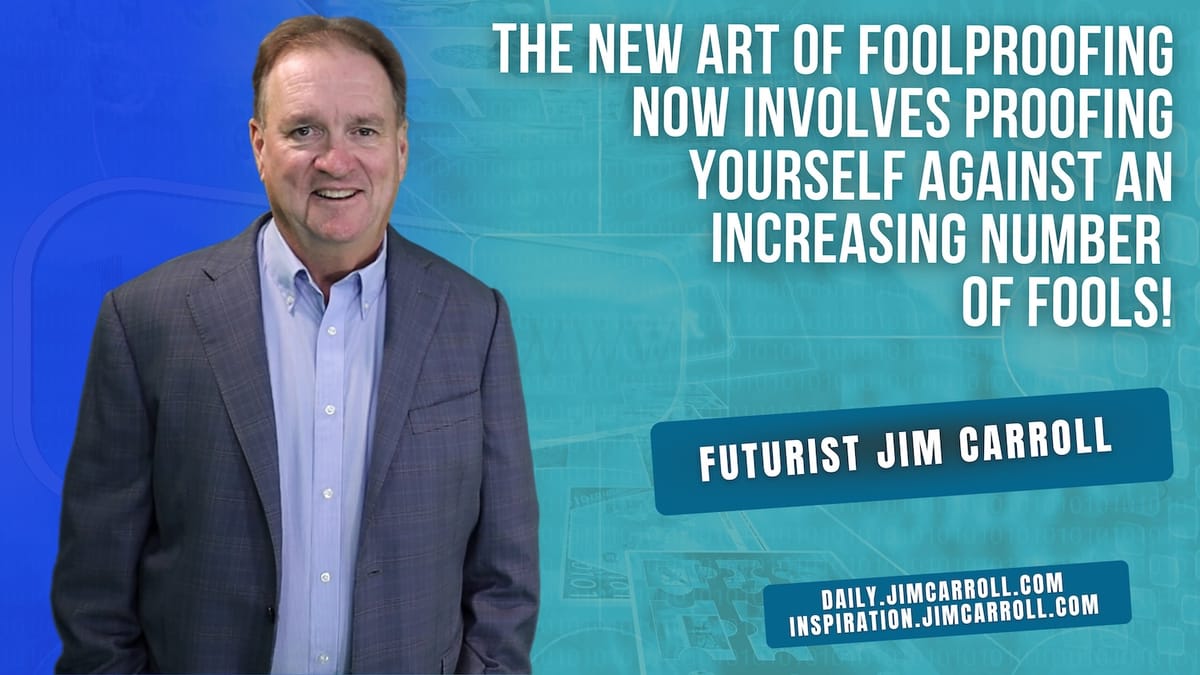"The new art of foolproofing now involves proofing yourself against an increasing number of fools!" - Futurist Jim Carroll
Gosh, it's just weird out there, isn't it?
Remember this post a few months ago? "When the future becomes a culture war, watch the trends. Not the noise"
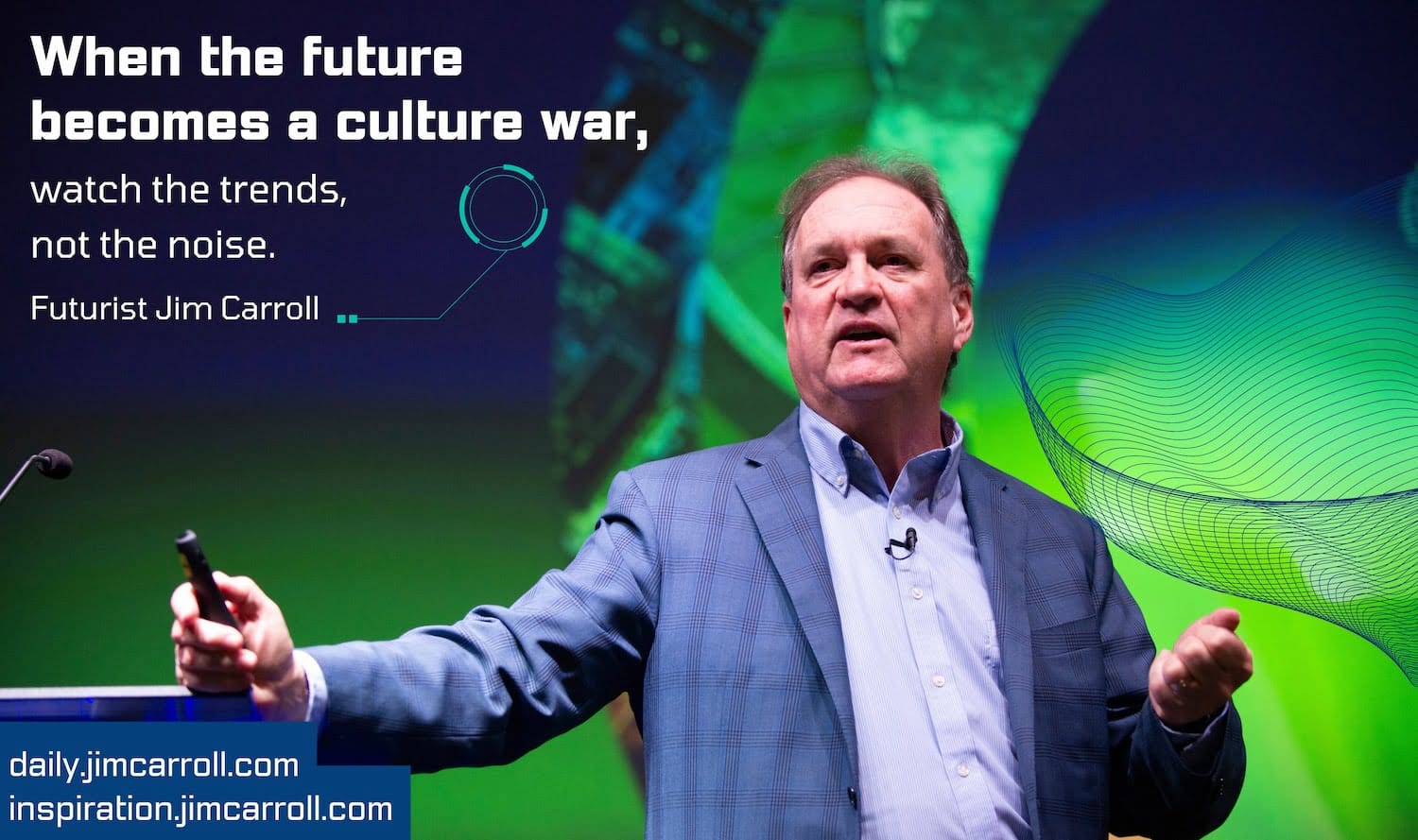
I found myself writing this:
It's a weird time to be a futurist - have you noticed that the future has become a culture war?
While you deal with the realities of science, technologies, trends, and tomorrow, large groups of people seek to inflame and chase their agenda by pursuing falsehoods. It seems that all of a sudden, electric cars have become doomed to fail; protein-based alternative foods have become some sort of evil thing with an anti-meat agenda; wind and solar energy have transitioned into an awful sort of tool designed to harm the carbon industry; and the concept of protecting the environment and our future has now become a culture war test of loyalty to the ancient ideas of yesterday.
While all of this unfolds in the US during a heated election season, China and other advanced economies are solidifying their stranglehold on the technologies and industries of tomorrow. In that context, history has taught us that when a culture war ends, the winner is usually not the one taking the side that is anti-science and anti-future.
I took this idea onto the stage yesterday, trying to very carefully address the issue of the future becoming part of our culture wars - in a very diplomatic fashion. Here's a short video clip of what I had to say during the stage check before everyone started to enter the room.
In that context, I built a section into my keynote where I was telling the audience - a room full of manufacturing executives - that while I was going to cover a vast number of topics related to the future of their industry, I would also give them a better understanding of how social and political mindsets of today might impact those trends. That, I believe, is critical in today's environment.
To that end, I shared this powerful bit of insight from Our World in Data:
People were asked "Over the next 15 years, do you think people around the world will be better off or worse off? In the same survey these people were tested on their knowledge about global development. In the chart below the respondents are grouped by the number of questions they answered correct."
The resulting data is enlightening.
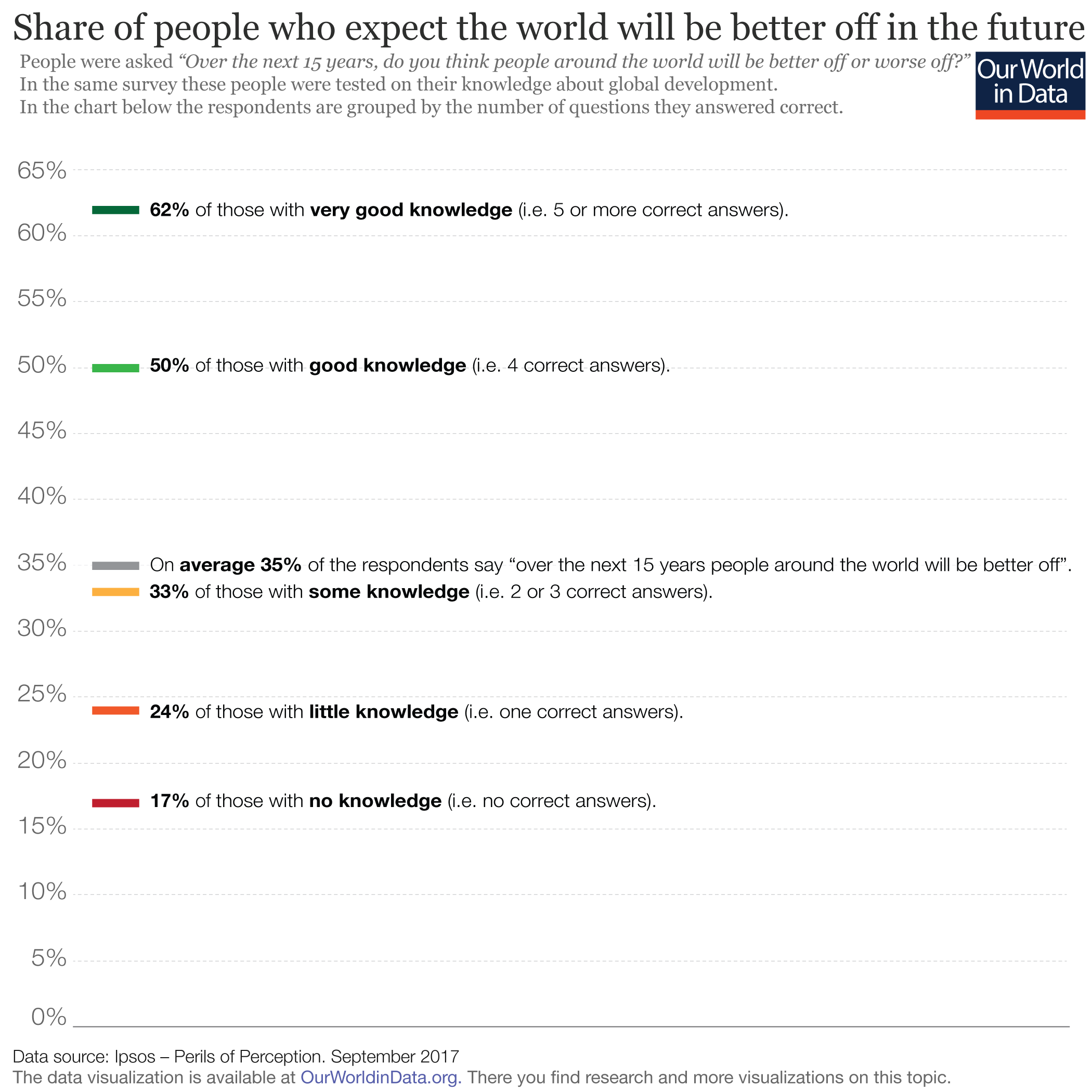
In other words, those who understand trends are ready to go forward into the future. Those who have only a bit of knowledge about tomorrow are more than likely to push back on the trends of tomorrow - leading to a very weird situation.
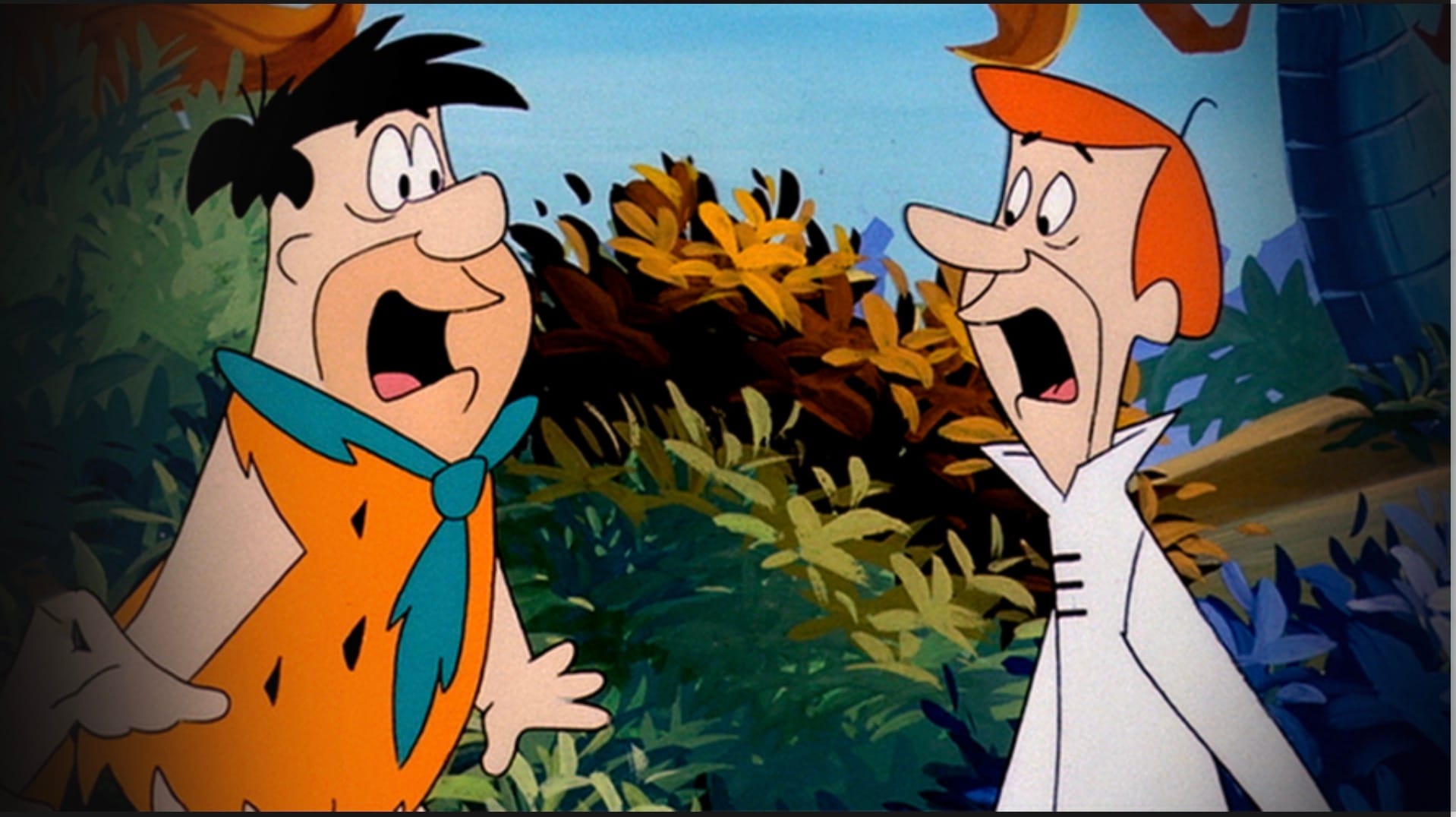
In essence, we have those who recognize the potential of tomorrow, and those who just want to go back to where we were yesterday.
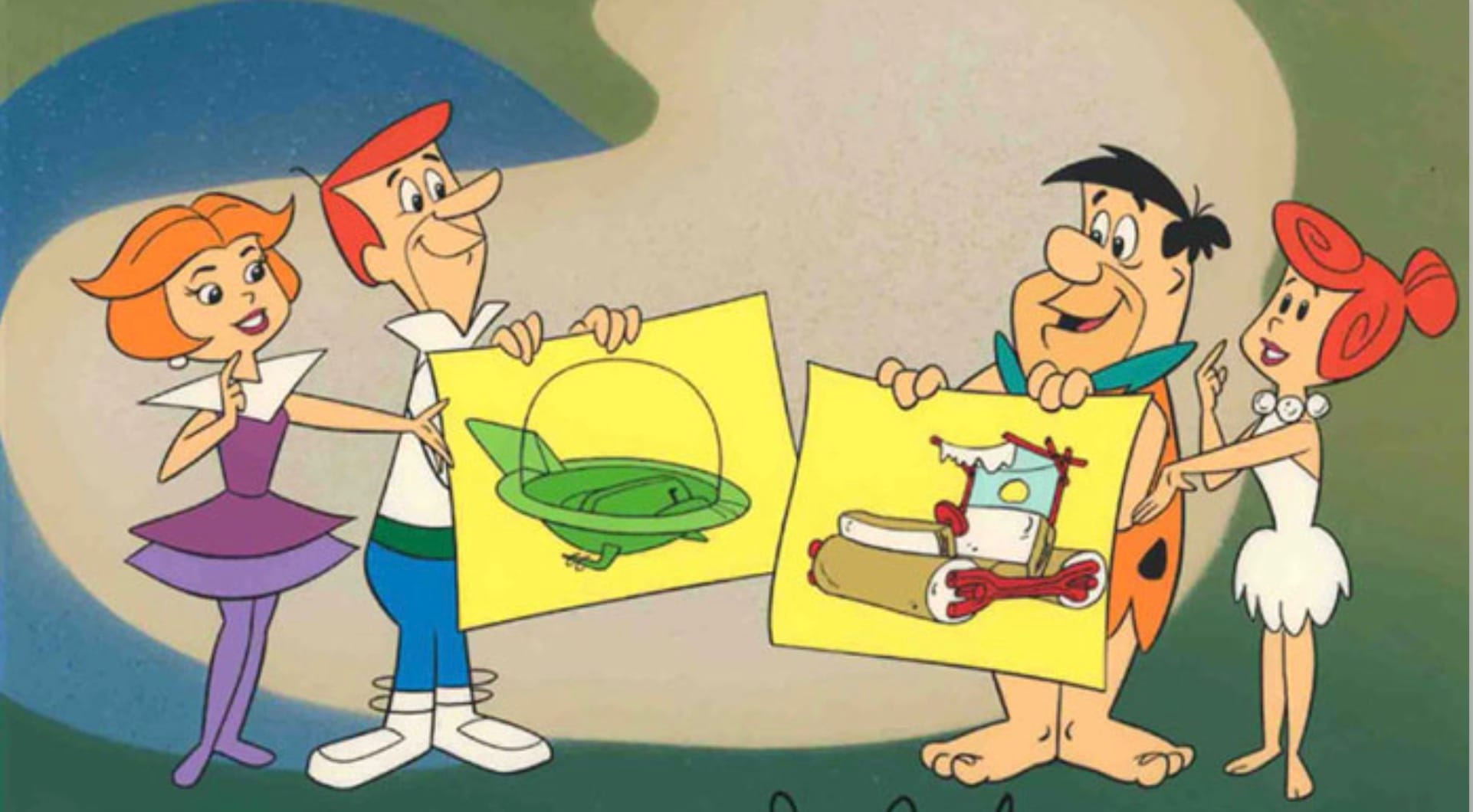
My key message - it's critical that we understand the trends of tomorrow because that is the best way to foolproof ourselves and our business model before we get there. But to do that, we now must deal with an increasing number of fools.
These are interesting times.
Futurist Jim Carroll tries as hard as he can to not talk about politics from the stage. He does believe that there are some pretty weird things happening out there.

